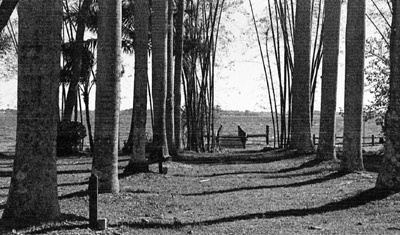All Nonfiction
- Bullying
- Books
- Academic
- Author Interviews
- Celebrity interviews
- College Articles
- College Essays
- Educator of the Year
- Heroes
- Interviews
- Memoir
- Personal Experience
- Sports
- Travel & Culture
All Opinions
- Bullying
- Current Events / Politics
- Discrimination
- Drugs / Alcohol / Smoking
- Entertainment / Celebrities
- Environment
- Love / Relationships
- Movies / Music / TV
- Pop Culture / Trends
- School / College
- Social Issues / Civics
- Spirituality / Religion
- Sports / Hobbies
All Hot Topics
- Bullying
- Community Service
- Environment
- Health
- Letters to the Editor
- Pride & Prejudice
- What Matters
- Back
Summer Guide
- Program Links
- Program Reviews
- Back
College Guide
- College Links
- College Reviews
- College Essays
- College Articles
- Back
The Effects of Tourism
Living in the rainforest of Chagres national park, a large amount of inhabitants both mestizo and indigenous are depending heavily on tourists for survival. The national park is located between the Province of Colon and Panama. In 1985 the national park was created without any consultation with the people who would be affected most. The national park was split into seven zones. In some, farming and fishing became prohibited. As a meaning of compromise, the Panamanian government allowed tourism in those communities. Now more than ever, the tourism industry in Panama is expanding. It constitutes approximately ten percent of Panama's national GPD and has grown an average of fifteen percent annually over the last two years. The only source of income for several communities is coming from outsiders. As I was traveling through Chagres national park I stopped in an Embera-Wounaan community and a community called Quebrada Ancha. During my encounters with members of the community, I began to see the affects of being restricted due to their home being part of one of Panama's largest national parks, and how much tourism changed their lives.
The Embera have no representatives in the Panamanian government as opposed to the Ngobe Bungle who have three and the Kuna who have two. As a result, I began to notice more hesitation from the Embera when I asked about their opinions on the government. "No nos ayudan mucho (el gobierno), pero nos dan permiso para tener touristas como ya no podemos cultivar lo que antes podiamos." "They (the government) does not help us much, but they do let us have tourists since we can no longer cultivate what we used to" (Juan Ortega, 54). Juan relies on tourism heavily. He sells carved figures out of wood and seeds to travelers. "What are the effects of tourism especially on the younger generation? Do they feel the pressure of continuing to follow their parent and grandparents footsteps in the industry of tourism?
Nathaniel, a father of two young boys, also from the Embera community wanted his children to work in tourism. It is not to say that tourism is bad because it does have many benefits such as profit for the community, personal income, preserving a culture, and even learning to work as a community that works together. However, tourism also has some negative consequences such as relying entirely or heavily on tourism, having little or no source of income for when the number of tourists decreases, and possibly a resulting majority of kids studying tourism in university instead of exploring other opportunities. "Quiero estudiar turismo para desarollar proyectos en la comunidad." "I want to study tourism to start up more projects in the community," Jorge Muños told me when I asked what he wanted to study. He is a seventeen-year-old student who travels to Panama City from his community Quebrada Ancha on the Chagres River, a six-hour journey. Carlos Housepian, a resident of Panama says, "When you teach a kid that tourism is the main source of income, they will be influenced on that." If tourism motivates children and adolescents in communities such as the ones I visited, that should not be bad. Nonetheless, I cannot help but wonder what would happen if they were exposed to other types of studies like medicine or law that could benefit their communities in other ways.
Traveling and talking to people in the hidden communities around the Chagres River I saw a pattern. These "developing" communities have been heavily affected from outsiders whether that is more positively or negatively is up for debate. Is it possible to travel without being a disturbance? Staying conscious of how your travels affect other is important. The art of traveling is a mystery that you will uncover the more you go out and talk to people who have lived a different life than you.

Similar Articles
JOIN THE DISCUSSION
This article has 0 comments.

Four months ago I arrived in Guatemala City for the last semester of my junior year. My travels were with the Traveling School, an all-girls school based out of Bozeman, Montana, with a focus on experiential learning and women's empowerment.
The last couple of weeks of my semester, I was in Panama living and studying about the indigenous and hidden communities along the Chagres River. I became intrigued by the complexities of tourism and wrote an article that focuses on the effects of outsiders coming for a "cultural" experience.